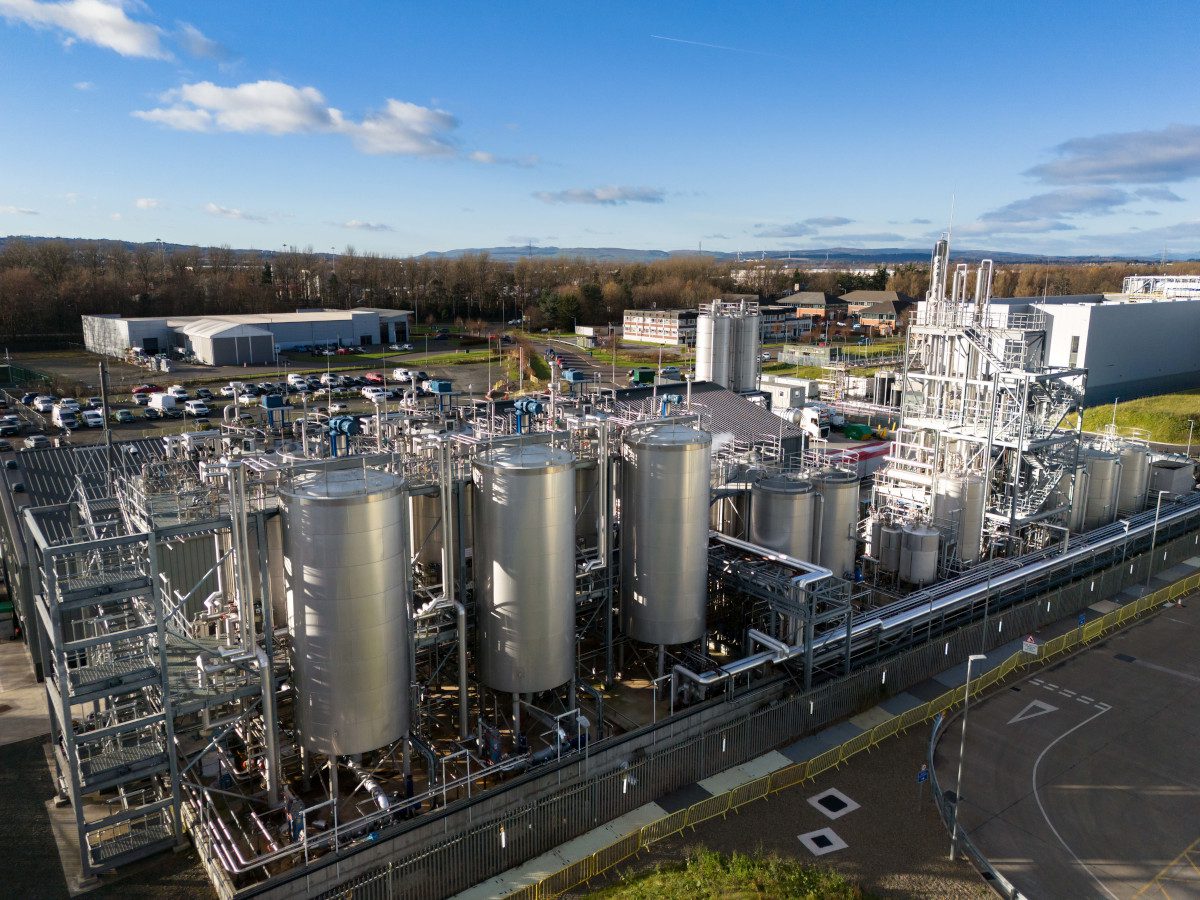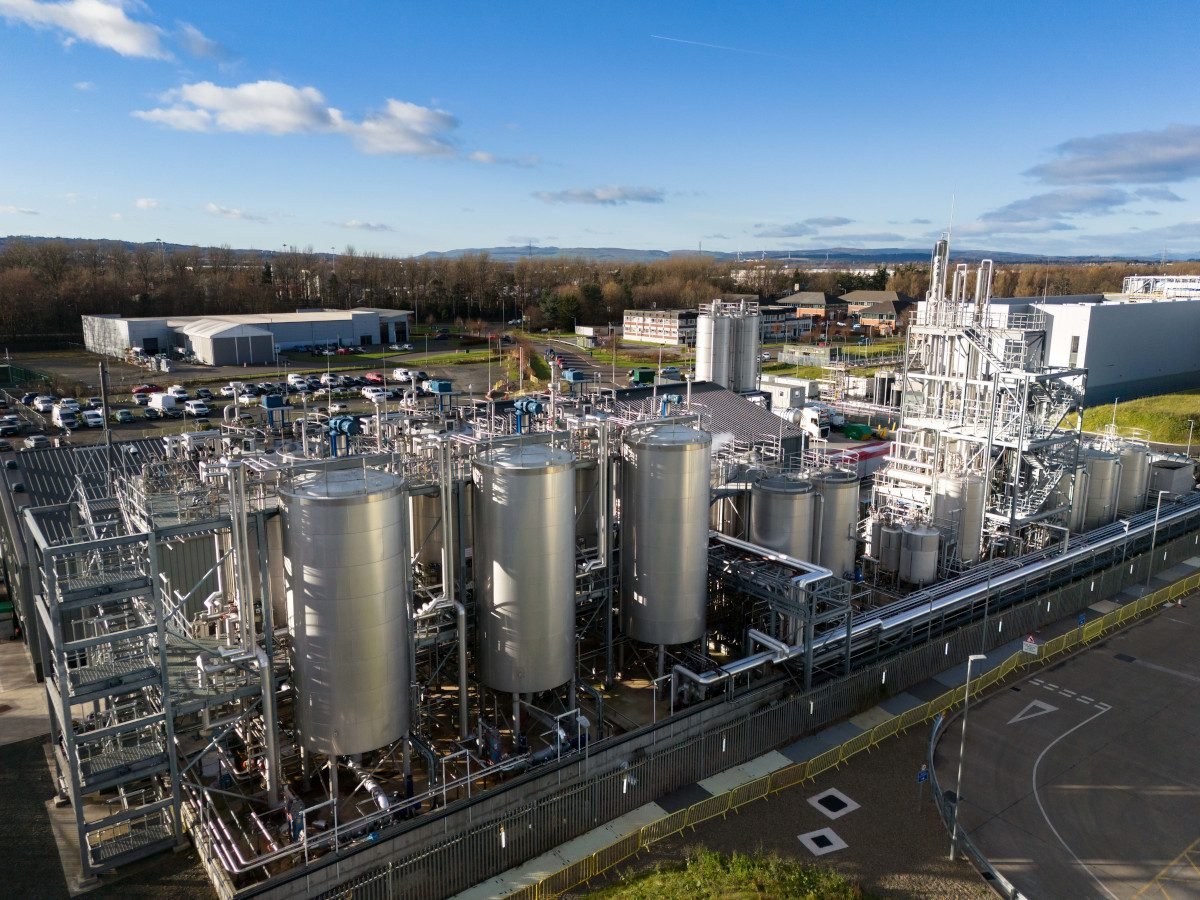
Demand is increasing for green chemicals that do without fossil fuel-derived ingredients, says Celtic Renewables, a Scottish firm focused on the sector, which attributes the growth to regulatory pressure to reduce carbon emissions in manufacturing supply chains together with growing demand from the public for greener, sustainably made products.
The demand is coming from major consumer goods firms and pharmaceutical companies, said the group, which is based in Grangemouth near Falkirk.
“Manufacturers have voluntarily set net zero and sustainability targets,” said Mark Simmers, the group’s CEO. “But they face the challenge of how to remove from their supply chains ingredients that are currently made from fossil fuels.
“At the same time, national governments including the UK are putting in regulations requiring departments and suppliers to move away from using fossil fuel-based materials.
“For example, according to NHS Shared Business Services, in 2024 supply chain emissions alone accounted for 74 percent of the NHS’s entire value chain greenhouse gas emissions.
“Working with pharmaceutical firms to reduce fossil fuel ingredients in their products will help shrink this figure down.”
Simmers went on, “The general public also want to do their part to conserve the environment and reduce emissions. This includes buying products that are made with sustainably sourced ingredients.
“The onus is on consumer goods firms to replace the oil-derived materials they currently use in their products with green alternatives – which is where Celtic Renewables comes in.”

Celtic Renewables was founded in 2012 and is backed by more than £60 million in private and public funding. Its biorefinery at Grangemouth began commercial operations in 2023 and it employs sixty people, of whom 17 – nearly a third of the workforce – previously worked in the oil and gas sector.
The company recently released a two-minute short film entitled “Circularity Renewed: The New Normal”. The film explores how the everyday items we rely on can be made more sustainable by using green chemicals instead of fossil fuel-based ingredients.
Celtic Renewables uses by-products and waste from the food, drink and agricultural industries to produce low-carbon green chemicals bio-acetone, bio-butanol and bio-ethanol.
These solvents have the same properties as their fossil fuel-based equivalents and are sustainable alternatives that can be used in the same products.
Simmers went on, “If manufacturers swap out existing chemicals for greener, non-fossil alternatives, their customers can live more sustainable lives without needing to make any changes to their shopping habits.”
“To date, the discussion about sustainability has been dominated by decarbonising the world’s energy systems and making the transition to renewables.
“But clean energy is only part of the drive to net zero: other industries need to decouple from fossil fuels, including the chemicals sector.”
He explained, “High-profile events like the annual United Nations COP conferences have brought corporations on board with the global environment movement and have been instrumental in shaping their long-term plans and strategy to be more sustainable.
“There is now a growing ambition and a commitment from manufacturers across a range of industries to cut their fossil fuel use and use bio-based alternatives.”
When it comes to how green chemical producers like Celtic Renewables can properly compete on price with larger fossil fuel-using rivals, Simmers points to scale as the answer.
“Competing with fossil fuel-using incumbents in the chemical industry is about economies of scale,” Simmers said. “The answer is to scale up production of bio-based chemicals to meet the clear demand in the market, in a way that is commercially viable,” he said.
“Our current biorefinery facility has proven the technical and commercial feasibility of using by-products and waste as a feedstock for chemical production.
“Our goal now is to secure new financial backing to build a larger facility over the next two to three years, with which we can fulfil the significant demand for our chemicals from customers and close the gap with incumbent producers.”
Simmers concluded by saying, “We’re at the beginning of the end of our dependence on fossil fuels. Celtic Renewables is showing that it’s possible for the chemical sector to transition away from fossil fuels and bring about a greener, more sustainable net zero economy and way of life.”
Celtic was recently nominated for the CPHI Pharma Awards for Sustainability in recognition of its achievements in innovation and sustainable manufacturing for the pharmaceutical industry.

